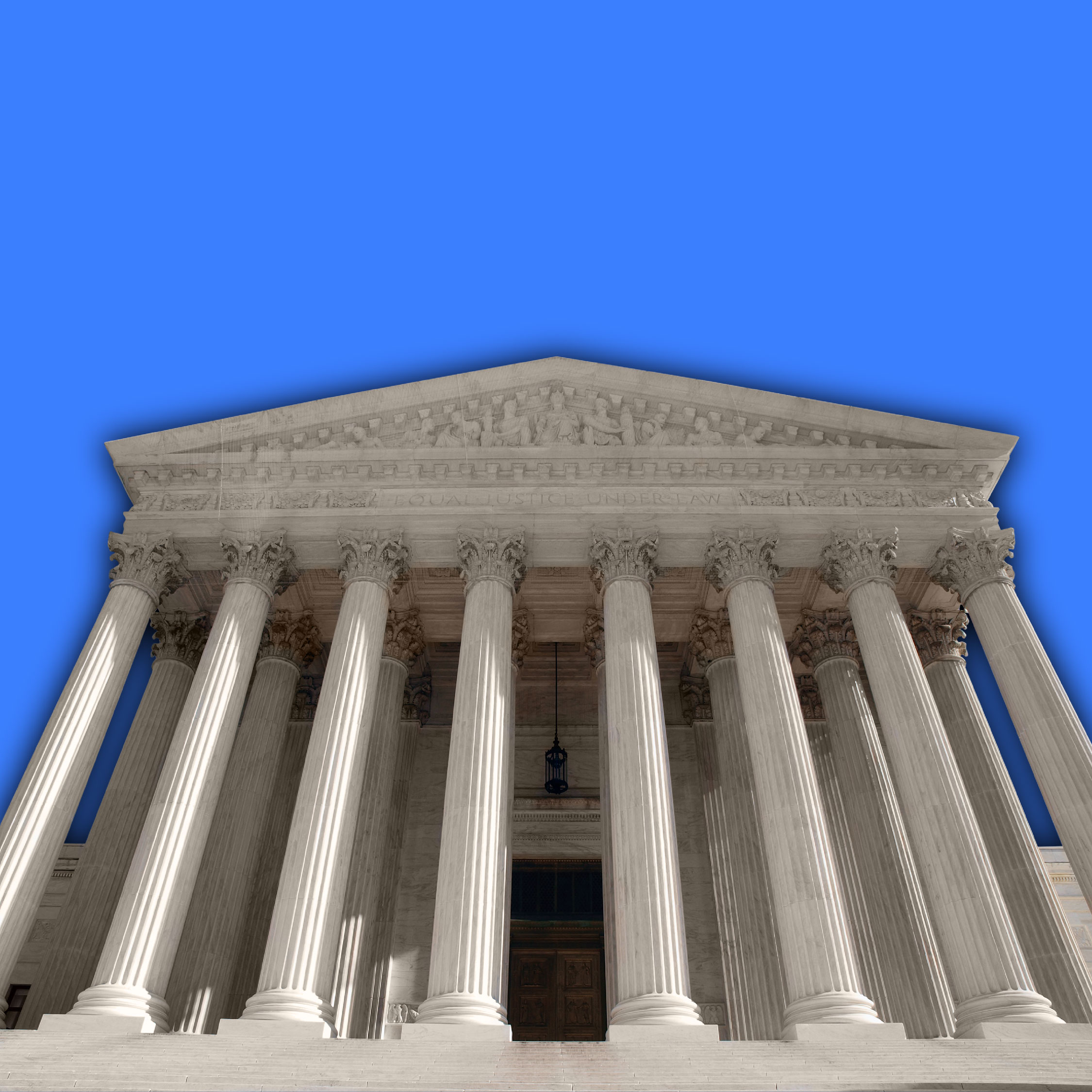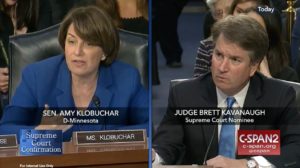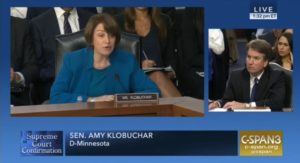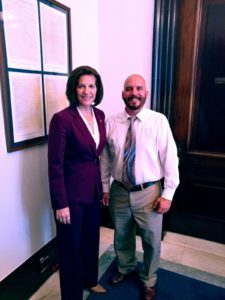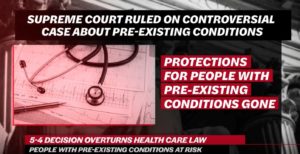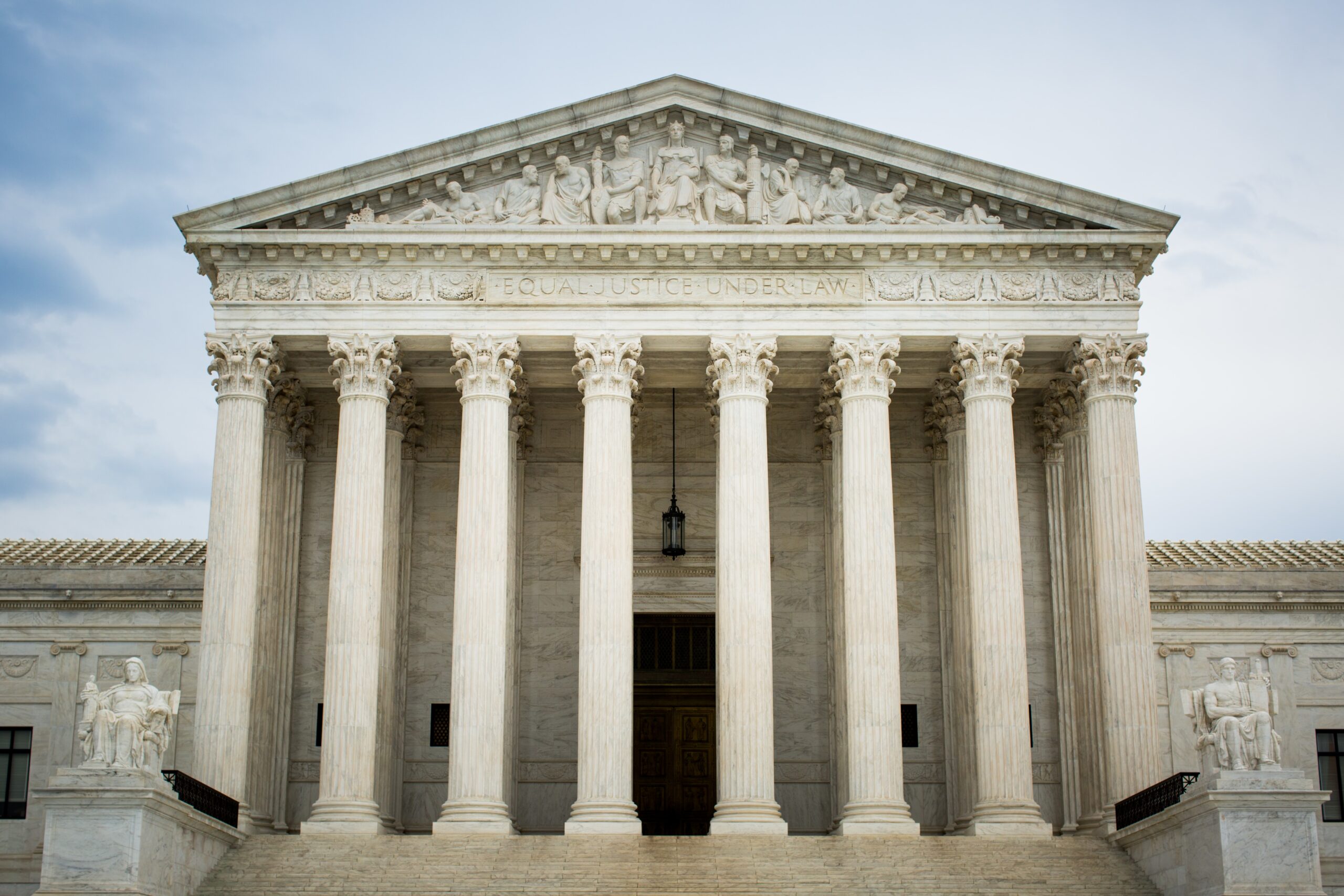
Yesterday, the Supreme Court heard oral arguments in Kennedy, et al. v. Braidwood, a case in which far-right extremists are seeking to invalidate a key portion of the Affordable Care Act (ACA) that requires insurers to cover lifesaving preventive services for free, including cancer screenings, statins to address high cholesterol levels, mental health screenings, and HIV prevention medication. Providing no-cost coverage of lifesaving screenings and services has saved innumerable lives, improved health outcomes, and reduced disparities in care. In total, over 150 million Americans have benefited from this provision of the ACA. Read more about the case here. Last week, Protect Our Care held a press call warning of the threats to American health care posed by the case.
Court watchers report the Supreme Court seems poised to reject the right-wing plaintiffs’ claims, but the threat does not stop there. Given the Trump administration’s ongoing attacks on experts, science, and health care, they are likely to undermine the availability of free vaccines, contraception, mental health, and other critical services.
Politico: Supreme Court Appears to Reject Conservative Argument Over Obamacare Provision.
- “But while President Joe Biden’s Justice Department argued that eliminating the coverage requirements would harm the public’s health, Trump’s attorneys focused exclusively Monday on Kennedy’s supervisory power. That argument has made progressive health advocates who filed amicus briefs in the case nervous — particularly given Kennedy’s views about vaccines and other preventive health care that contradict the medical community’s consensus, as well as his reported desire to overhaul other HHS advisory committees.”
Jezebel: This Supreme Court Case Underscored How Much Power RFK Jr. Has Over Our Health Insurance.
- “Leslie Dach, a former HHS aide who now leads the group Protect Our Care, told Politico: ‘We are very, very nervous that they will take a sledgehammer to vaccines, take a sledgehammer to contraception and a number of other preventative services that the American people benefit from and need.’”
Axios: ACA Preventive Care Case Reaches Supreme Court.
- “Progressive advocacy groups remain concerned that the Trump administration could use its authority to limit coverage of vaccines, contraception and other scientifically backed preventive services. ‘We’re going to have to remain very, very vigilant in seeing how the administration, which thankfully is defending the law now, behaves when the power is in their hands,’ Leslie Dach, chair of Protect Our Care, told reporters last week.”
Politico: Obamacare Returns to SCOTUS, With Preventive Care on the Line.
- “‘It’s important that they’re looking to protect this authority, but we’re hoping that they’re not just doing it because they want the ability to ruin our health care,’ said Leslie Dach, a former senior counselor at HHS who now leads the group Protect Our Care. ‘We are very, very nervous that they will take a sledgehammer to vaccines, take a sledgehammer to contraception and a number of other preventative services that the American people benefit from and need.’”
The Hill: SCOTUS to Hear Obamacare Free Care Case.
- “‘The minute that provision gets struck down … we will be back at the mercy of the insurance companies. They’ll still get the same premium from you, but they’ll offer less services,’ said Leslie Dach, executive chair of the Democratic-aligned group Protect Our Care.”
Politico Pulse: Obamacare in Court … Again.
- “‘It’s important that they’re looking to protect this authority, but we’re hoping that they’re not just doing it because they want the ability to ruin our health care,’ said Leslie Dach, a former senior counselor at HHS who now leads the group Protect Our Care. ‘We are very, very nervous that they will take a sledgehammer to vaccines, take a sledgehammer to contraception and a number of other preventative services that the American people benefit from and need.’”
AP News: US Supreme Court Appears Likely to Uphold Obamacare’s Preventive Care Coverage Mandate.
- “The case could have big ramifications for the law’s preventive care coverage requirements for an estimated 150 million Americans. Medications and services that could be affected include statins to prevent heart disease, lung cancer screenings, HIV-prevention drugs and medication to lower the chance of breast cancer for high-risk women.”
ABC News: Supreme Court Divided Over Obamacare Mandate for No-Cost Preventive Health Benefits.
- “‘The ACA’s preventive services requirement has been a game-changer, providing access to evidence-based preventive care and early detection of serious medical conditions,’ said Wayne Turner, a senior attorney at the National Health Law Program, a nonprofit group that advocates for low-income communities. ‘The ACA’s coverage and cost-sharing protections are especially important for low-income persons, who will be harmed most if the Supreme Court refuses to allow the ACA provision to stand.’”
The New York Times: Supreme Court Wrestles With Challenge to Affordable Care Act Over Free Preventive Care.
- “But the case, Kennedy v. Braidwood Management, could have broader implications for tens of millions of Americans who receive a wide array of free health care services, including cancer and diabetes screenings, medications to reduce heart disease and strokes, and eye ointment for newborns to prevent infections causing blindness. A ruling in favor of the challengers could mean that insurers would no longer be required to offer free coverage for any care the United States Preventive Services Task Force has recommended since 2010.”
CBS: Dispute Involving Affordable Care Act’s Preventive Care Coverage Faces Supreme Court.
- “If the Supreme Court affirms the decision of the U.S. Court of Appeals for the 5th Circuit, major hospital associations and leading nonprofits advocating on behalf of breast cancer and HIV patients have warned it would limit access to life-saving medical care for millions of patients, as insurers would no longer be required to cover at no cost to patients the services recommended by the task force.”
CNN: Supreme Court Could Help Preserve Obamacare’s No-Cost Preventive Care Task Force.
- “At stake is the ability of millions of Americans to access cost-free services under the Affordable Care Act such as cancer screenings, statins that help prevent cardiovascular disease, PrEP drugs that help prevent HIV infections, and counseling referrals for pregnant and postpartum women at increased risk of depression. The task force’s recommendations were challenged by a Texas business, Braidwood Management, that objected on religious grounds to covering certain preventive services, including the PrEP medications.”
The Washington Post: Challenge to ACA Preventive-Care Panel Draws Skepticism From Supreme Court.
- “Health-care providers and nonprofit organizations say the closely watched case could affect critical health services for many Americans who might otherwise not have access to them.”
Fierce Healthcare: Supreme Court Appears Willing to Save ACA Preventive Services Task Force.
- “‘Stepping back and looking at the bigger picture, the challengers’ claim is supposedly about political accountability,’ said Andrew Pincus, a partner at law firm Mayer Brown. ‘But if that is what they really were after, it’s been achieved: the government agrees that the Secretary can control whether recommendations become binding on private parties through his power to appoint and remove USPSTF members and his power to issue regulations determining when and whether recommendations become effective.’”
The Advocate: Justices Kavanaugh & Barrett Signal They May Uphold Access to PrEP and Preventative Care Protections.
- “The case began as a religious objection to PrEP and has expanded into a full-blown assault on the ACA’s preventive care guarantees. LGBTQ+ and public health advocates warn that a ruling in favor of the plaintiffs would allow insurers to begin denying or charging for services currently guaranteed to be free—like STI testing, diabetes screening, contraception, and maternal care.”
Mother Jones: The Latest Supreme Court Case Targeting the ACA Comes from a Longtime Anti-Gay Activist.
- “‘The people who are going to be hurt most are the people who can’t just pull out a credit card and pay full cost for a service, or pay a $50 co-pay or an $80 co-pay,’ says Wayne Turner, senior attorney at the National Health Law Program. ‘It is a literal lifesaver for people to be able to have some early detection.’”
Fierce Healthcare: ‘At the Mercy of Insurance Companies’: Supreme Court Braces for ACA Preventive Coverage Suit Oral Arguments.
- “‘I think at the end of the day, we need to make sure we understand this is going to mean more deaths at even a higher cost to Americans, and there’s no question that there’s savings down the line when we do this,’ said Georges Benjamin, M.D., executive director at the American Public Health Association. If the provision is overturned, it will lead to more deaths from cancer, strokes and drug use, he added.”
- “‘It was an easy choice,’ said Minnesota Attorney General Keith Ellison in a press briefing April 16. ‘First, the plaintiff’s argument doesn’t hold up and relies on bad faith reading of the appointments clause, and the court could also take steps to repair the provision in question without destroying these essential programs.’”
STAT: In Braidwood v. Kennedy, Supreme Court Is Hearing Challenge to ACA Rule Requiring Free Preventive Care.
- “‘This is about giving them the power, to some extent. This is a fight to say, the secretary has the power. If they win, they can uphold the experts’ recommendations or attempt to veto them, which then would likely trigger a court challenge,’ said Andrew Pincus, a lawyer representing the American Public Health Association in an amicus brief filed to the Court.”
Washington Examiner: Supreme Court Skeptical Of Undoing Obamacare Preventive Coverage Mandates.
- “Braidwood Management, a Texas Christian-owned business, argued that the task force members ought to be construed as ‘primary officers,’ meaning it is unconstitutional for them to be appointed by the secretary of Health and Human Services, as they are today. Instead, they should be subject to presidential appointment and Senate confirmation under the appointment clause of the Constitution.”
- “If the court rules in favor of Braidwood, all changes that the task force has made since 2010 would be invalidated, including the HIV medication PrEP, cancer screenings, and certain maternal care measures.”
STAT: Opinion: Employers Should Continue Waiving Preventive Care Out-Of-Pocket Costs Regardless Of How Supreme Court Rules.
- “The Supreme Court has several options in this case: It could rule narrowly or broadly in favor of the plaintiffs, rule against them, or avoid making a substantive ruling altogether. A narrow ruling for the plaintiffs might apply only to their specific circumstances, leaving preventive care provisions intact for other employers. A broader ruling could eliminate the requirement for insurers to cover services recommended by the USPSTF without cost-sharing — potentially limited to those recommendations issued after 2010, including PrEP. A very broad decision could strike down all preventive service mandates under the Affordable Care Act. Alternatively, the court may rule against the plaintiffs entirely or decline to decide the case on procedural grounds.”
- “Preventive health care coverage has proven to be a worthwhile benefit that saves lives and improves health. Regardless of the Supreme Court decision, there are compelling reasons for employers to maintain coverage of preventive services without cost sharing like deductibles and copays.”
